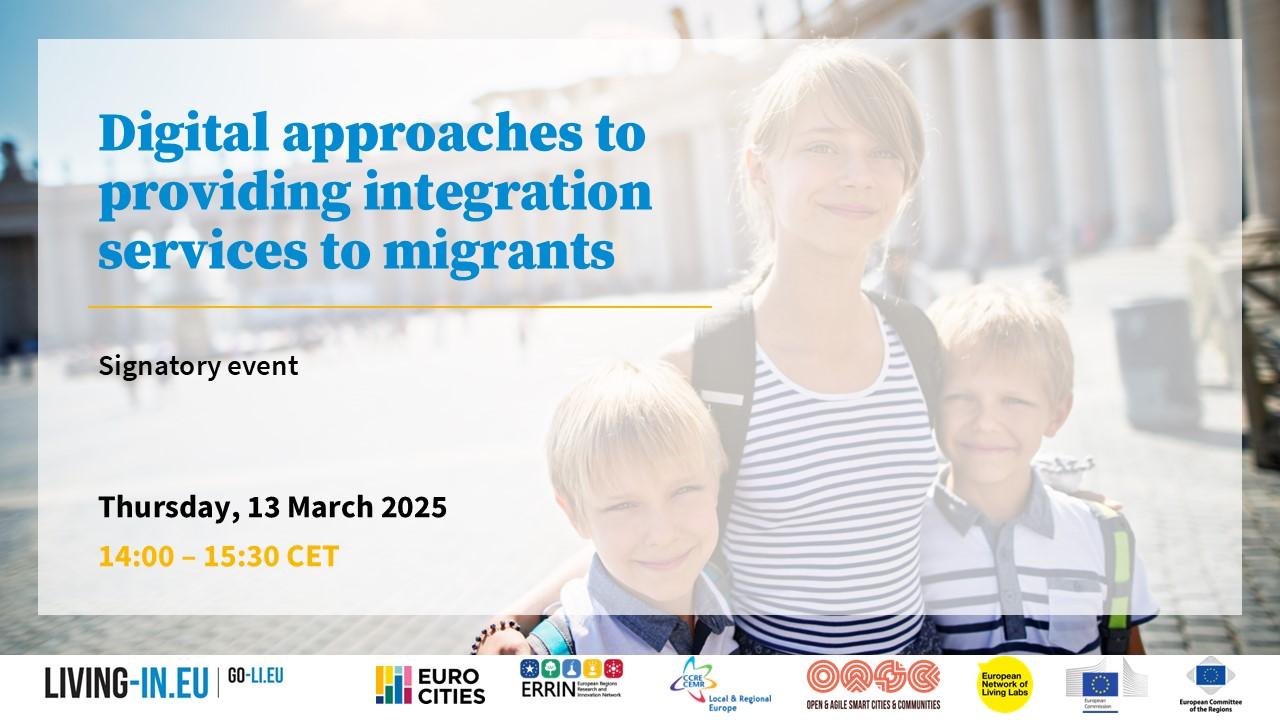Digital approaches to providing integration services to migrants

In May 2024, the EU agreed on the New Pact on Migration and Asylum that is set to govern the EU's approach to managing migration and aims to set up a common European asylum system. According to the New Pact, technology plays a central role in implementing migration policies, especially when it comes to the control of border and migration movements. Technological solutions aim to enhance control and reduce irregular immigration. However, this digital shift also raises concerns about the potential infringement of migrants' rights, particularly concerning surveillance discrimination and data protection. For instance, the Pact introduces a pre-entry screening procedure for collecting biometric data from third-country nationals. It also reforms the Eurodac database by expanding the types of data stored and data collection objectives.
Cities are often the first to experience the impacts of migration and are responsible for implementing integration policies. For this reason, the digitalisation of migration management has profound implications for local governance.
Eurocities and the Friedrich-Ebert Stiftung have published a joint paper that explores the impact that the digital regulations of the New Pact will have on migrants' rights and the crucial role cities play in protecting these rights. The paper also explores how cities may use digitalisation to the advantage in providing integration services.
Objective of the session
Cities are deploying digital solutions such as data-sharing systems, applications, and artificial intelligence to support the implementation of integration policies and to help refugees and migrants navigate public services. At the same time, cities are facing the challenge to guarantee that migrants' rights to privacy, data protection and transparency are upheld, while taking into account their exposure to surveillance and technological biases.
How can cities ensure that digital human rights of migrants and refugees are respected when using technological solutions to provide integration services?
In this session, we will see examples from several cities on safeguarding migrant rights while delivering effective integration services: These examples include AI-driven chatbots, databases to share information between partner organisations, digitalised translation solutions, and apps facilitating access to digital municipal services. We will also share insights and recommendations from the joint paper on the impact of the New Pact's digital regulations on migrants' rights.
Agenda
14:00-14:05 - Welcome (Gabriela Ruseva, Living-in.EU coordinator, Eurocities)
14:05-14:15 - The EU New Pact on Migration and Asylum and digital rights (Léa Lebon, Digital Rights consultant)
14:15-15:00 - Digital approaches from cities to providing integration services to migrants
- Audio-video interpretation services in the City of Berlin (Dr. Weronika Priesmeyer-Tkocz, City of Berlin, Head of the Unit “Structural Integration”)
- AI-powered language proficiency and translation services in the City of Espoo (Irena Bakić, Project manager, Trust M research project)
15:00-15:10 - Recommendations from the joint paper on the impact of the New Pact's digital regulations on migrants' rights (Katharina Bamberg, Head of Migration, Eurocities)
15:10-15:30 - Q&A / Discussion with the participants







